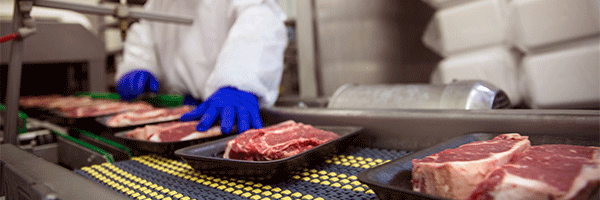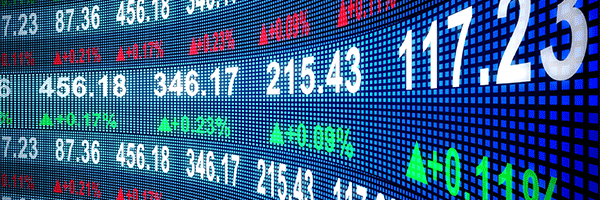Morning Briefing

May 16, 2025 | Daily JAM, Morning Briefing |
Maybe Wall Street and the Federal Reserve are still cranking the numbers to see the effects of the Trump tariffs on U.S. inflation, but consumers have apparently already made up their minds. A big increase in expectations for future inflation was key in driving today’s drop in preliminary May Consumer Sentiment Index from the University of Michigan to 50.8 from 52.2 a month earlier. That reading was the second lowest on record and lower than all but one estimate in a Bloomberg survey of economists.

May 15, 2025 | Daily JAM, Morning Briefing, WMT |
Walmart warned Thursday that price increases look certain–possibly within weeks–even after President Donald Trump announced a deal to reduce tariffs on Chinese exports to “just” 30%.
“We’re positioned to manage the cost pressure from tariffs as well or better than anyone, but even at the reduced levels, the higher tariffs will result in higher prices,” Walmart chief executive Doug McMillon said

May 13, 2025 | Daily JAM, Morning Briefing, Short Term |
Consumer Price Index (CPI) inflation ticked up month to month in April from March. but the annual rate of inflation fell. The all-items CPI rose 0.2% in April. that reversed a slight decline in March. The annualized rate of inflation fell to 2.3%. The annual rate of headline inflation is the lowest since early 2021. Core inflation, which excludes food and energy, rose at an annual rate of 2.8%. That was the same annual rate as in March. The Federal Reserve watches core inflation, rather than all-items inflation.

May 12, 2025 | Daily JAM, Morning Briefing |
The United states and China have agreed to pause higher tariffs for 90 days. Treasury Secretary Scott Bessent and U.S. Trade Representative Jamieson Greer said Monday, after weekend talks in Geneva with a Chinese delegation led by Vice Premier He Lifeng, that U.S. tariffs on Chinese goods would be reduced from 145% to 30%. Beijing said it would cut its blanket tariffs on American products from 125 to 10 percent. Both reductions will take effect on Wednesday. What’s it all mean?

May 9, 2025 | Daily JAM, Morning Briefing |
President Donald Trump suggested on Friday that he was open to sharply reducing the tariffs that the United States had imposed on China, as American and Chinese negotiators prepare to meet in Switzerland this weekend for high-stakes trade talks. In a post on Truth Social, Trump said that an 80% tariff on China “seems right,” adding that it would be “up to Scott B,” an apparent reference to Treasury Secretary Scott Bessent. An 80% tariff would be a big drop from the current 145% that President Trump imposed on Chinese imports on April 2. But many trade experts say that anything north of 50% would essentially shut down trade between the two countries. In 2020, in the midst of the first Trump trade war, U.S. tariffs on Chinese goods averaged 19.3%. Before the Trump trade war they were 3%.

May 8, 2025 | Daily JAM, Morning Briefing |
To subscribe to JAM you need to fill in some details below including, ahem, some info on how you'll pay us. A subscription is $199 (although if you're subscribing with one of our special offers it will be lower) for a year for ongoing and continuing access to the...

May 7, 2025 | Daily JAM, Morning Briefing |
As everyone, including my Aunt Tillie, expected, the Federal Reserve DID nothing today: the central bank kept is benchmark interest rare unchanged at 4.25% to 4.50%. But the Fed said plenty. To me, the most important statement came from Federal Reserve chair Jerome Powell to reporters after the meeting: Powell said he could not provide a timeframe for rate cuts. “We are going to need to see how this evolves,” he said. “There are cases in which it would be appropriate for us to cut rates this year. There are cases in which it wouldn’t. And we just don’t know.”That’s new.

May 6, 2025 | CMI, Daily JAM, Jubak Picks, Mid Term, Morning Briefing, Top 50 Stocks |
Ford Motor (F), Cummins (CMI), and Mattel (MAT) are the latest companies to pull their revenue and earnings guidance for the rest of 2025 because of uncertainty introduced by the Trump tariffs.

May 5, 2025 | Daily JAM, Morning Briefing |
Have analysts lowered earnings estimates more than usual for companies in the Standard & Poor’s 500 for the second quarter?
FactSet says the answer is yes. During the month of April, analysts lowered EPS estimates for the second quarter by a larger margin than average. The bottom-up EPS estimate for the second quarter decreased by 2.4% (to $63.96 from $65.55) from March 31 to April 30

May 1, 2025 | Daily JAM, Morning Briefing |
As economic indicators go, recent results from McDonald’s, Chipotle Mexican Grill, and Starbucks are worth paying attention to–and the message the three consumer giants are sending isn’t a positive one for the U.S. economy.

April 30, 2025 | Daily JAM, Morning Briefing |
The U.S. economy contracted at annualized rate of 0.3% in the first quarter of the year. That’s much slower growth than the positive 2.4% rate in the fourth quarter of 2024. This is the first quarterly decline in real GDP since the first quarter of 2022, and it was below expectations for a positive growth rate of 0.2%.

April 29, 2025 | Daily JAM, Morning Briefing |
Today General Motors announced that it was pulling its previous earnings guidance for 2025 and putting $4 billion in share buybacks on hold until it has more clarity on the impact of U.S. tariffs.














